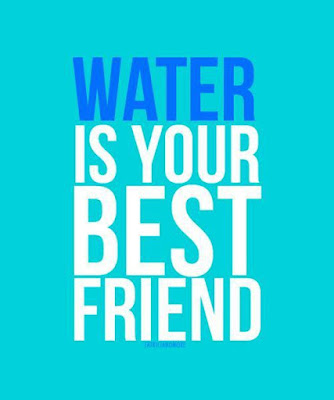Water is Our Best Friend
Many people have misconception about the water retention and water loss especially those who want to lose weight, they thought by drinking less, it also lose the water loss that can result in weight loss in overall, however it's not entirely true.
Let us take a look further about water retention, water loss and how it helps to lose or maintain our weight.
The human body contains around 60% water which is needed to aid body system and function well.
What is water retention ?
It occurs when excess fluids build up inside our body. It occurs in the circulatory system or within tissues and cavities. It can cause swelling in the hands, feet, ankles and leg.
What is water weight ?
Any extra water being held in the body is refereed to as "water weight". When water builds up in the body, it can cause bloating and puffiness, especially in the abdomen, legs and arms.
Water levels can make a person's weight fluctuate by as much as 1 - 2 kg in a single day.
What is water weight loss ?
When we reduce our calorie intake, our body gets its needed energy by releasing and utilizing its stores of glycogen. Glycogen holds onto water, so when it's used and burned up for energy, it also releases the water it holds unto. This results in the initial "water weight" loss that accompanies early weight loss from dieting and calorie restriction.
How to lose water weight fast and safely ?
1. Exercise on regular basis
Any form of exercise increases sweat which means we will lose water. The average fluid loss during one hour of exercise is between 0.5 - 2 L/hour. During exercise, our body also shifts a lot of water into our muscles.
2. Sleep more
Sleep may affect the sympathetic renal nerves in the kidneys which regulate sodium and water balance. Adequate sleep may also help our body control hydration levels and minimize water retention.
3. Stress less
Long term stress can increase the hormone cortisol which directly influences fluid retention and water weight.
4. Manage salt intake
Sodium is one of the most common electrolytes in the human body. It plays a major role in hydration levels. A high salt intake may increase water retention, coupled with low water intake and no exercise.
5. Drink more water
Well hydrated can actually reduce water retention. Our body is always trying to achieve a healthy balance, so if we're constantly dehydrated our body tends to retain more water in an attempt to prevent water level from becoming too low.
6. Cut carbs
Carbs are stored in the muscles and liver as glycogen, but glycogen also pulls water inside along with it.
When people switching to a low-carb diet, they may experience immediate weight loss due to water weight in glycogen stores. Carbs also lead to a rise in the hormone insulin, which can increase sodium retention and reabsorption of water in the kidney.





Comments
Post a Comment